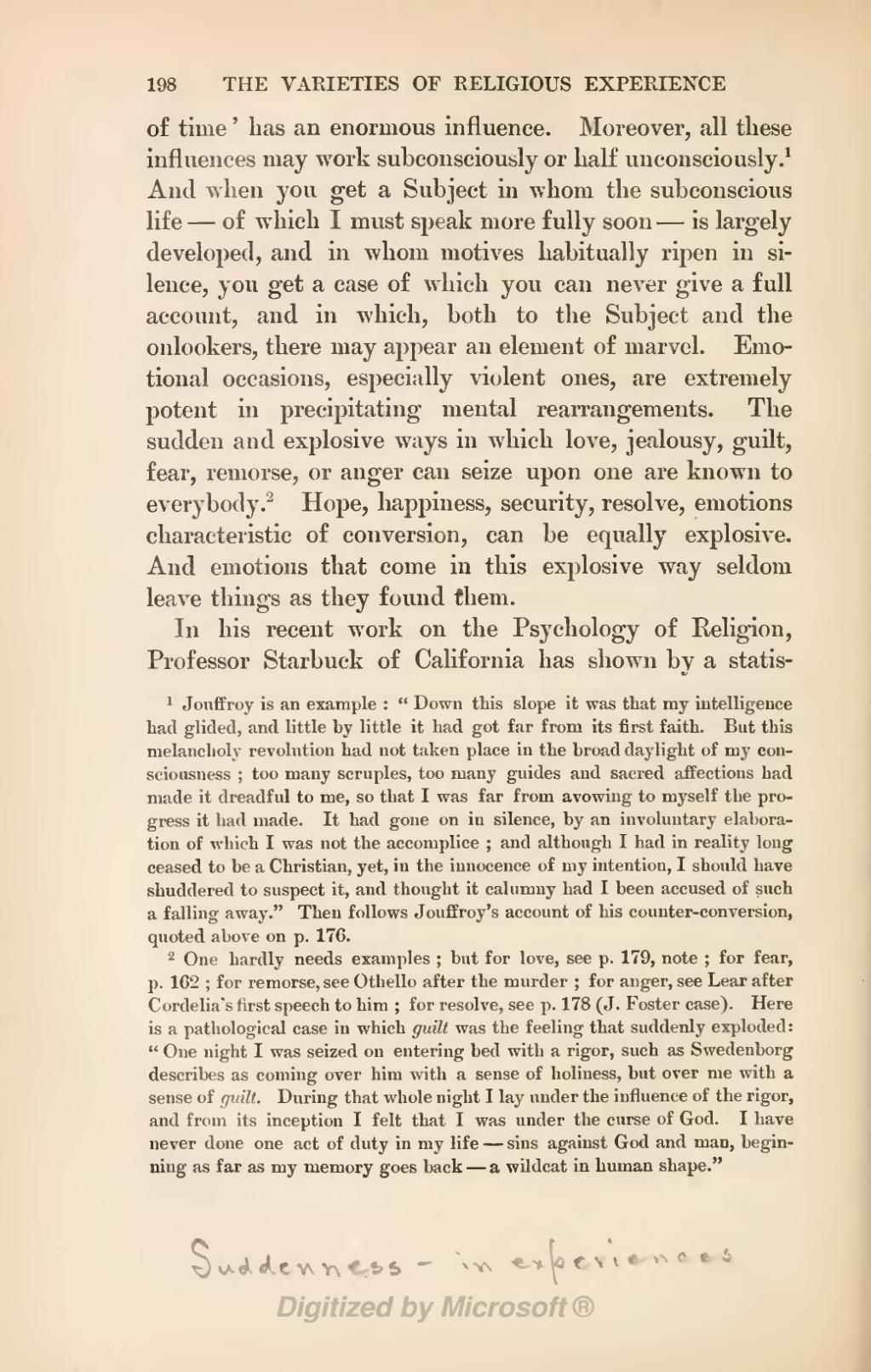of time' has an enormous influence. Moreover, all these influences may work subconsciously or half unconsciously.[1] And when you get a Subject in whom the subconscious life—of which I must speak more fully soon—is largely developed, and in whom motives habitually ripen in silence, you get a case of which you can never give a full account, and in which, both to the Subject and the onlookers, there may appear an element of marvel. Emotional occasions, especially violent ones, are extremely potent in precipitating mental rearrangements. The sudden and explosive ways in which love, jealousy, guilt, fear, remorse, or anger can seize upon one are known to everybody.[2] Hope, happiness, security, resolve, emotions characteristic of conversion, can be equally explosive. And emotions that come in this explosive way seldom leave things as they found them.
In his recent work on the Psychology of Religion, Professor Starbuck of California has shown by a statis-
- ↑ Jouffroy is an example: "Down this slope it was that my intelligence had glided, and little by little it had got far from its first faith. But this melancholy revolution had not taken place in the broad daylight of my consciousness; too many scruples, too many guides and sacred affections had made it dreadful to me, so that I was far from avowing to myself the progress it had made. It had gone on in silence, by an involuntary elaboration of which I was not the accomplice; and although I had in reality long ceased to be a Christian, yet, in the innocence of my intention, I should have shuddered to suspect it, and thought it calumny had I been accused of such a falling away." Then follows Jouffroy's account of his counter-conversion, quoted above on p. 176.
- ↑ One hardly needs examples; but for love, see p. 179, note; for fear, p. 162; for remorse, see Othello after the murder; for anger, see Lear after Cordelia's first speech to him; for resolve, see p. 178 (J. Foster case). Here is a pathological case in which guilt was the feeling that suddenly exploded: "One night I was seized on entering bed with a rigor, such as Swedenborg describes as coming over him with a sense of holiness, but over me with a sense of guilt. During that whole night I lay under the influence of the rigor, and from its inception I felt that I was under the curse of God. I have never done one act of duty in my life—sins against God and man, beginning as far as my memory goes back—a wildcat in human shape."
